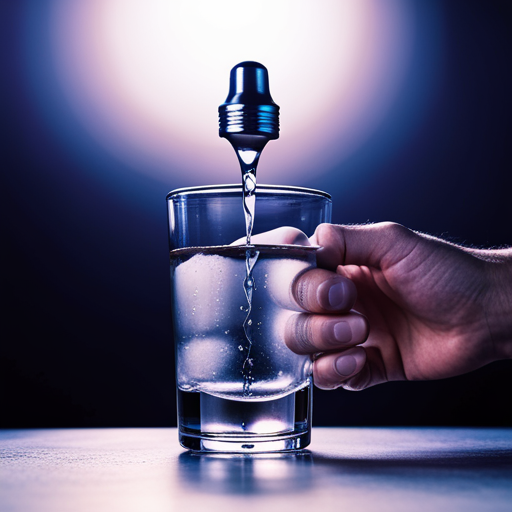Are you experiencing a salty taste in your softened water? This can be a frustrating issue that can make your water undrinkable and unpleasant to use. Fortunately, there are several reasons why this may be happening and solutions to address the problem.
In this article, we will guide you through the causes of salty-tasting softened water, how water softeners work, and potential solutions to troubleshoot your water softener and improve your water quality.
Firstly, it is essential to understand that softened water should not have a salty taste. If you have a water softener, it should remove hard water minerals like calcium and magnesium and replace them with sodium ions. However, if you notice a salty taste in your water, something may not be working correctly.
It could be an issue with your water softener, high sodium concentration in tap water, or too much salt added during the softening process. Keep reading to learn more about these potential causes and how to address them.
Key Takeaways
– High sodium concentration in tap water or too much salt added during the softening process can cause water to taste salty.
– Proper maintenance and troubleshooting of water softener can ensure fresh and clean water.
– Softened water can be harmful to those on a sodium-restricted diet.
– Regular maintenance of water softener is crucial to prevent a salty taste in softened water.
Causes of Salty Taste
If your softened water tastes salty, it could be due to a few reasons. One possible cause is a high sodium concentration in your tap water. Water softeners use sodium to remove magnesium and calcium ions from the water, which can make your water taste salty.
Another reason could be that too much salt was added during the softening process, which can also result in a salty taste. Additionally, issues with your water softener, including its components or the regeneration cycle, can cause the water to taste salty.
If you’re concerned about the taste of your softened water, there are testing options available to help identify the root cause of the problem. It’s also important to note that those on a sodium-restricted diet should have their water tested, as the high sodium content in softened water can be harmful to their health.
By properly maintaining and troubleshooting your water softener, you can ensure that your water tastes fresh and clean.
Water Softeners
To ensure optimal function of your water softener, all components must be in good condition, and the regeneration cycle may take anywhere from 30 to 100 minutes. Water softeners work by exchanging ions using sodium to remove magnesium and calcium from your tap water. During the regeneration cycle, calcium and magnesium ions are removed from the resin bed.
However, if your water softener is not working properly, it can cause a salty taste in your softened water. Proper maintenance of your water softener is crucial to prevent this from happening.
Maintenance tips for your water softener include adjusting or repairing the softener, troubleshooting components such as clogged valves or lines, and checking for a faulty spacer stack or piston. It is important to properly install and maintain your water softener to prevent any issues.
Common problems that can cause salty-tasting water include high sodium concentration in tap water or too much salt added during the softening process. If you’re concerned about the taste of your water, contact a qualified water treatment professional to have your water tested and to receive further assistance in troubleshooting your water softener.
Solutions and Considerations
When addressing the taste of your softened water, it’s important to consider that it may taste more acidic or pick up flavors and odors from your pipes and plumbing. This is because soft water is more reactive than hard water and can dissolve metals and other substances in your plumbing.
To avoid this issue, it’s recommended to flush your plumbing system regularly and use a quality water filter.
Maintenance tips for your water softener include regularly checking and cleaning the brine tank, adding the correct amount of salt, and ensuring all components are in good condition. Additionally, it’s important to properly install and maintain your water softener to avoid any malfunctions that could result in a salty taste.
If you’re on a sodium-restricted diet, it’s recommended to have your water tested to ensure it’s safe for consumption. Health concerns should always be taken seriously, and a qualified water treatment professional can provide guidance on how to address any issues.
Conclusion
So, there you have it! If you’re experiencing a salty taste in your softened water, it’s likely due to issues with your water softener, high sodium concentration in tap water, or too much salt added during the softening process.
Thankfully, there are solutions to help troubleshoot your water softener and improve your water quality. First, check the salt level in your water softener and adjust accordingly.
Additionally, consider installing a reverse osmosis system or a whole-house carbon filter to reduce sodium levels in your tap water. Finally, make sure to maintain and clean your water softener regularly to prevent future issues.
With these solutions in mind, you’ll be able to enjoy the benefits of soft water without the salty taste.
